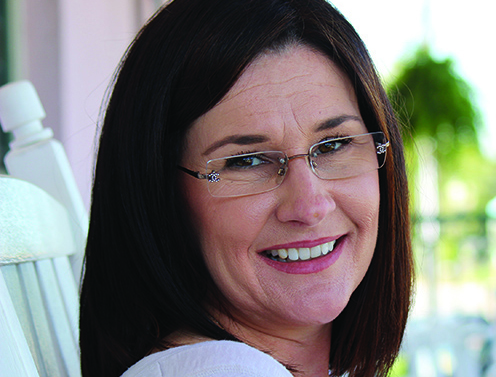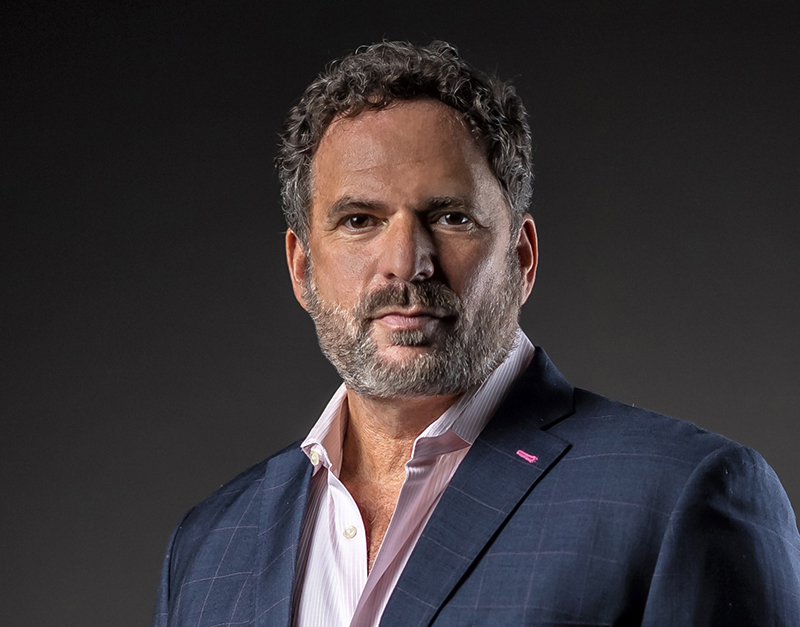[vc_row css_animation=”” row_type=”row” use_row_as_full_screen_section=”no” type=”full_width” angled_section=”no” text_align=”left” background_image_as_pattern=”without_pattern”][vc_column width=”2/3″][vc_column_text]
Antony Slumbers is a self-proclaimed evangelist. Of sorts.
What he is preaching might alarm office landlords: “The traditional office is dead. Long live the ‘imaginarium.’ ”
To survive, office landlords must shift their model and mindset to provide “space as a service,” he contends.
In a rare confluence of skill sets in commercial real estate—whose long-held operating tenets have hinged on bricks, mortar and location—Slumbers is both a real estate developer and technology innovator, and arguably one of the foremost thought leaders on how technology and artificial intelligence is disrupting the office market.
Technology is changing the nature of work, he says, and office space as we know it is antiquated.
“Forty-nine percent of all the tasks humans do are structured, repeatable and predictable, and this will be replaced by automation,” Slumbers proclaims in his fast-paced, excitable British-accented voice to a blended crowd of co-working and traditional office space operators, who gathered in September for the annual FlexOffice conference in Austin, Texas.
Slumbers calls this “old work,” which is what gave rise to the ubiquitous cubicle farms and perimeter offices. That design, he says, was for an era when most work had to be done at the office. But “new work,” he says, is what machines can’t do—tasks that require human-only qualities such as creativity, imagination, empathy, inspiration and compassion. Those work endeavors will give birth to a new generation of activity-based workplaces.
“Fundamentally, I think the real estate industry is no longer about real estate, it is bigger than that,” Slumbers says. “Real estate has to learn a lot of new skills on top of what we already do.”
The start of that new office design theory and experiential work environment is already sweeping the office landscape. You don’t have to look further than the rise of co-working spaces, à la WeWork, to get the drift of where the future of office is headed.
Chiefly, it is more about the overall experience workers get from being in the office and the ease in which businesses can ramp up and down, depending on their real-time desk needs.
By some measures, 40 percent of desks go unused on any given day, so the potential to gain efficiency and cost savings from adopting a flexible, unassigned desk and collaborative design model is compelling to companies.
According to CBRE’s 2018 Americas Occupier Survey Report, 52 percent of responding companies say they’ll implement some level of unassigned seating to promote space efficiency and flexibility. Forty-five percent of respondents say they expect to transition to an activity-based workplace design curated for employees.
Outside the fixed corporate home or regional office, the universe of outsourced flex space offerings includes everything from slick, amenity-rich co-working operations to serviced, plug-and-play, turnkey space available quickly and for shorter terms to business incubators and accelerators. In 2010, the co-working and flex market inventory accounted for 10.6 million square feet of the U.S. market. Now it is 60 million square feet, according to data from American professional services and investment management company Jones Lang LaSalle.
Corporate users increasingly are tapping outsourced flex space as part of their corporate real estate portfolio, and taking down large numbers of desks on demand.
According to the CBRE report, 35 percent of companies surveyed say they are currently using co-working space as part of their overall real estate footprint for 50-plus employees in a single location. That percentage is expected grow to 40 percent within three years.
Increased demand for these highly serviced and flexible co-working spaces is going to take more market share from traditional office space providers, Slumbers and other experts warn.
“You are not selling a product, you are selling a service,” Slumbers says of the seismic shift he sees coming for office building owners. “The user experience of a building will allow you to build a brand that is recognizable just like a BMW, Mercedes or Audi.”↵
Freelance writer Darcie Lunsford is a former real estate editor of the South Florida Business Journal. She is the senior VP for leasing at Butters Group and is avoiding a conflict of interest in her column by not covering her own deals.
[/vc_column_text][/vc_column][vc_column width=”1/3″][/vc_column][/vc_row]
















